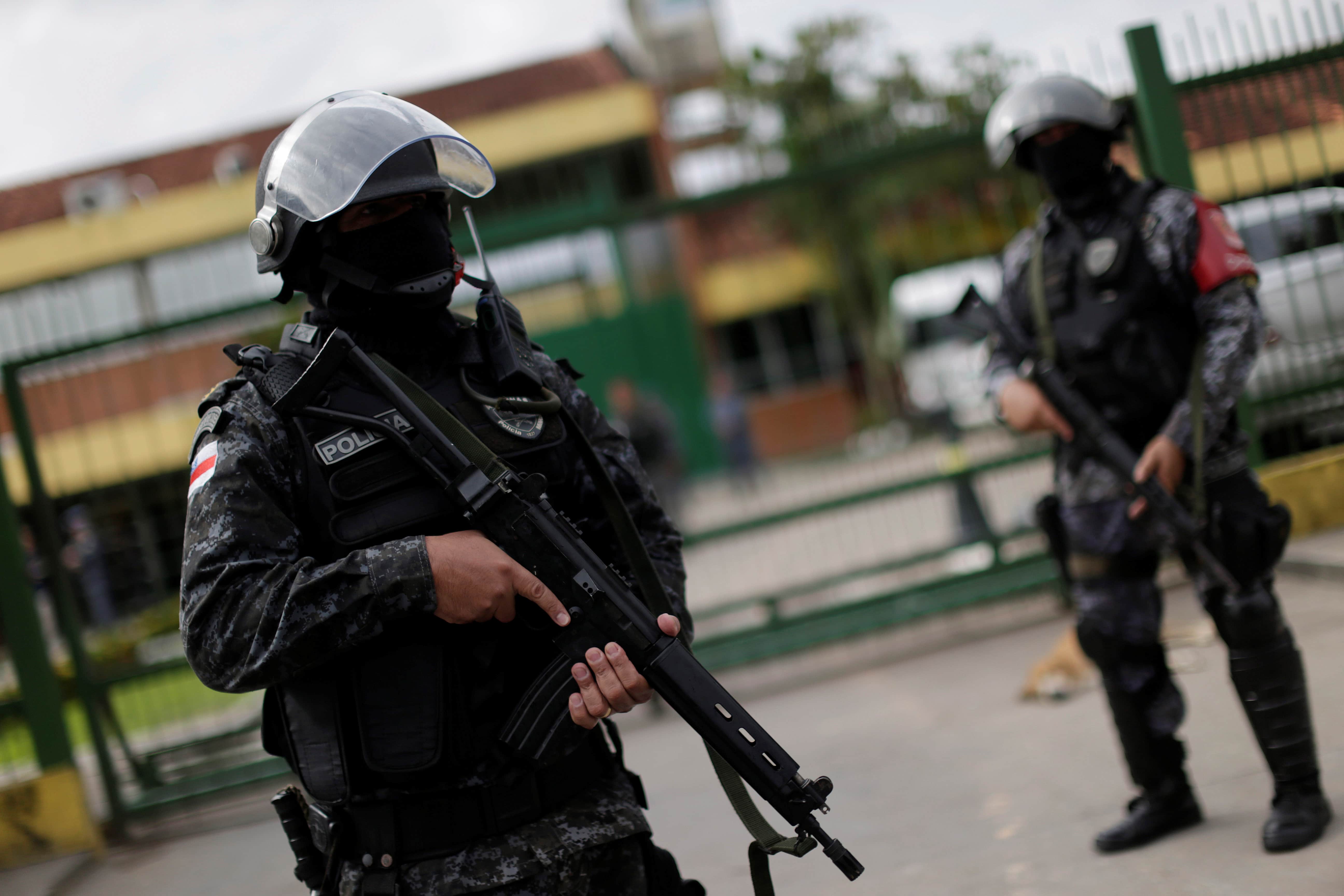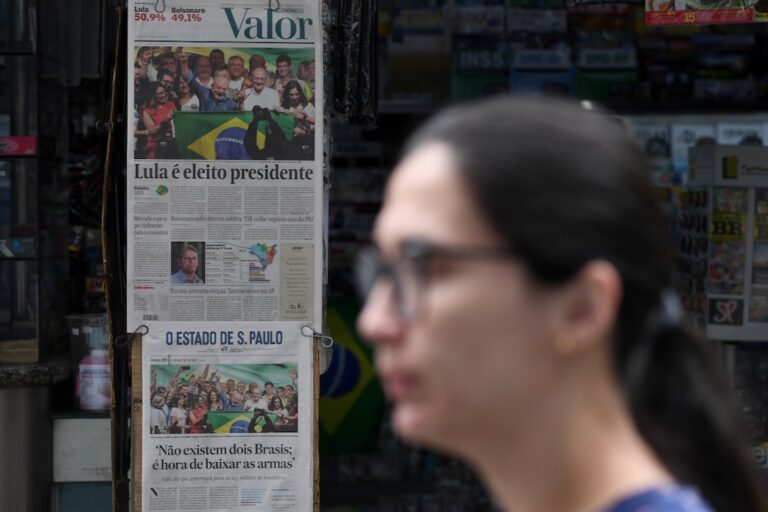Brazil's 436,000 military police have severe legal restrictions on their free speech. In a country with 60,000 killings a year, that's a deadly problem.
This statement was originally published on hrw.org on 9 March 2017.
Brazilian authorities should reform laws that have been used to impose disproportionate punishments on military police officers who speak out publicly to advocate reform or voice complaints, Human Rights Watch said today.
“A country with close to 60,000 killings a year urgently needs to consider new approaches to public security,” said Maria Laura Canineu, Brazil director at Human Rights Watch. “Those who fight crime every day on the streets have an invaluable perspective on security policy and police reform; and should be able to express their views without fear of being punished arbitrarily.”
Brazil’s 436,000 military police officers patrol the country’s streets, a purely civilian task, but are subject to military law because they are technically considered to be auxiliary forces of the Army. Brazil’s military criminal code and various state disciplinary codes include broad restrictions on the officers’ free speech rights.
Police officers who transgress these limits can end up in prison under the military criminal code. Police commanders also have wide discretion to impose harsh penalties under the disciplinary codes. Under article 166 of the military criminal code, criticizing a superior officer or a government decision are crimes punishable with up to a year in prison. Inciting “indiscipline” is punishable with up to four years under article 155. State disciplinary codes that govern the conduct of military police officers, both on duty and off duty, and of retired military police officers contain similar infractions, punishable with up to 30 days in detention and expulsion from the force. These offenses are so broadly framed that they allow for harsh punishment out of all proportion to the severity of the offense, and in some cases this is precisely what happens.
International human rights law allows countries considerable – though limited – discretion to limit the free expression rights of security force personnel. It does not, however, allow authorities to impose punishments that are disproportionate to the severity of any offense.
Darlan Abrantes, a military police officer in the state of Ceará, was sentenced to two years in prison in July 2016 after he self-published a book saying that the police force should be demilitarized. The sentence was suspended, but he had already been expelled from the force in 2014 in connection with the matter, destroying his career. Police officers also told Human Rights Watch that they had been subject to arbitrary punishments in retaliation for speaking out in ways that angered superiors, without access to any effective remedy.
Brazilian authorities should reform laws to ensure that any punishments meted out to military police officers who transgress legal restrictions on their right to free expression are proportionate to the severity of any offense, Human Rights Watch said. They should ensure that all officers have access to an effective and impartial appeals process.
The authorities should also consider whether it is necessary and appropriate for police officers to be subject to the limits on free expression imposed under the military criminal code and state disciplinary codes, or whether a less restrictive legal framework is called for under international and regional human rights law.
Several reform efforts are under way that could achieve that purpose, and result in more accountable and effective policing. They include bills in Congress to delink the military police from the army and to abolish administrative detention, as well as proposals at the state level to reform disciplinary codes.
The unreasonably harsh punishments handed down to some police officers have a dramatic chilling effect on other members of the force, who often refrain from expressing opinions or suggestions about law enforcement reform for fear of reprisals, said Human Rights Watch.
“Officers can be imprisoned and their careers destroyed for expressing opinions about police reform that their commanders don’t like,” said Canineu. “These penalties are out of all proportion to whatever interest the government has in limiting their ability to speak out.”
For details of Human Rights Watch findings and cases against military police officers, please visit the Human Rights Watch site.



